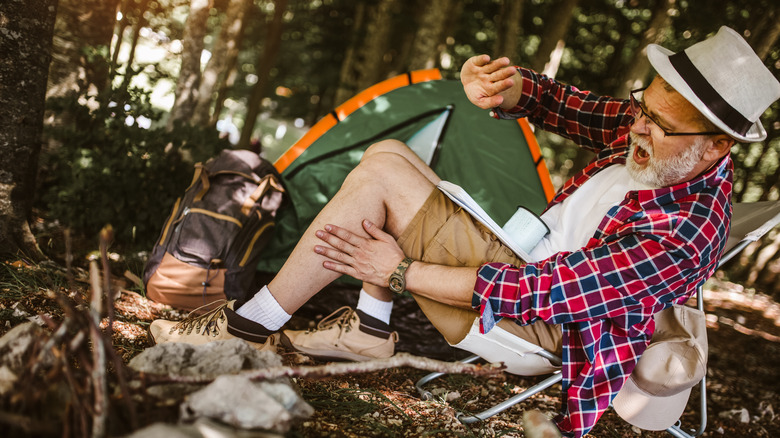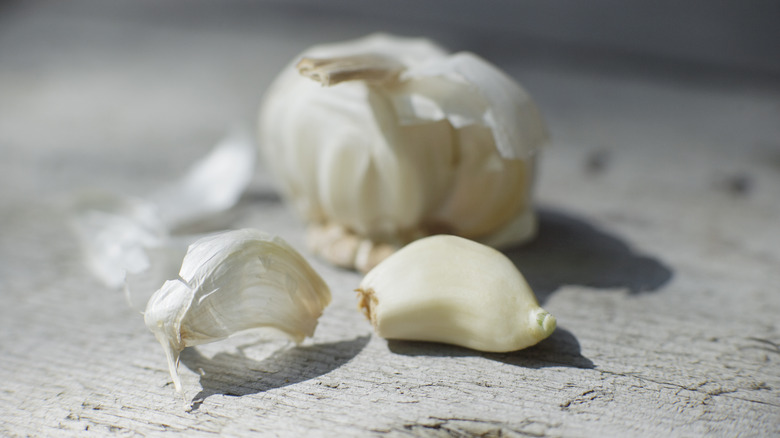Banish Bugs From Your Campsite With One Handy Kitchen Ingredient
There are lots of things to like about camping: s'mores by the campfire, being able to see the stars away from the city lights, and simply enjoying all that nature has to offer. Of course, the last thing you want on your camping trip is to be eaten alive by bugs. While there are many bug sprays available, if you're looking for a natural alternative, look no further than your pantry. Garlic is not just something that enhances dishes or wards away vampires — it may also be a natural pest repellent.
The reason behind the effectiveness of garlic is said to be its pungent smell, which may confuse, repel, and in some cases, kill unwanted pests. As for whether it's truly effective, a 2005 study conducted by the University of Connecticut Health Center did not conclude that garlic was effective in repelling mosquitoes. However, the study did note that more time may be needed to properly analyze its repellent properties. Anecdotally, though, there are many accounts of garlic repelling pests like mosquitoes, flies, and beetles. Since it's likely to be in your camp cooking kit, it might be worth packing an extra bulb or two in case you run out of bug spray.
How to use garlic to repel bugs
When it comes to using garlic to use chase away insects, you have a few options. The first is consumption, either by taking garlic capsules or eating garlic directly. The smell emits from your pores to repel unwanted pests. So garlic-lovers, try incorporating a few cloves into your camping meals on your next trip. Because it's the smell of garlic that deters, there are other ways you can use it if you don't want to eat garlic directly. You can also try rubbing it on your skin or keeping some garlic near you at your campsite. You even can make a garlic spray by mixing minced garlic, dish soap, and water.
As long as you don't mind the smell, garlic is a great option to try for keeping bugs at bay. If you don't want to eat or smell garlic while camping, other natural alternatives to try include peppermint, rosemary, and thyme. So before you head out on your next camping trip, make sure to stop by your pantry.

